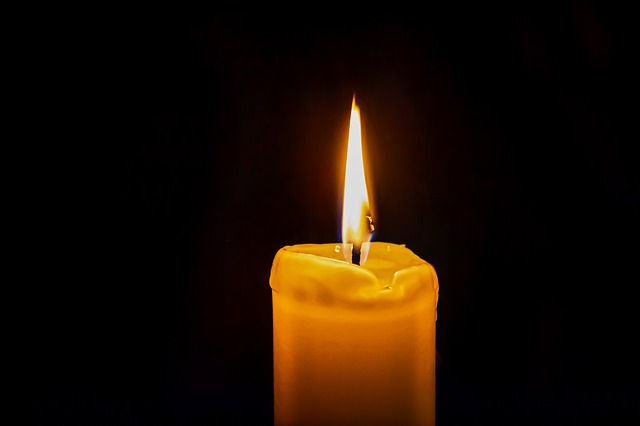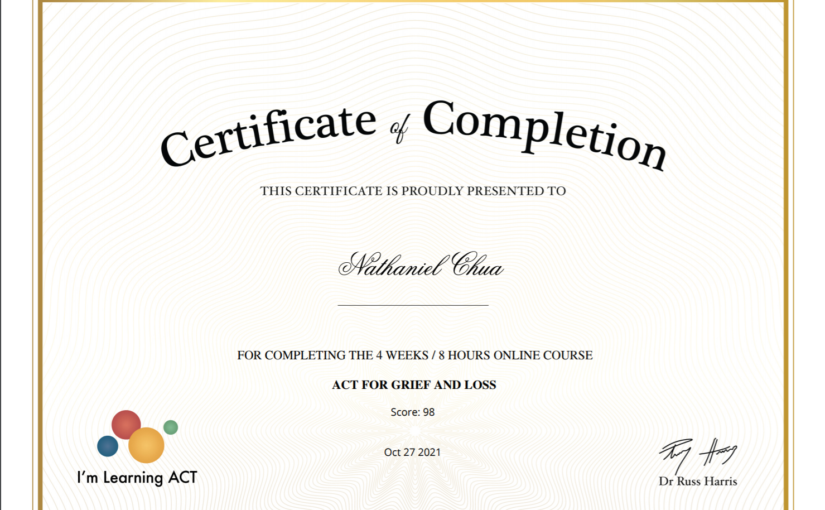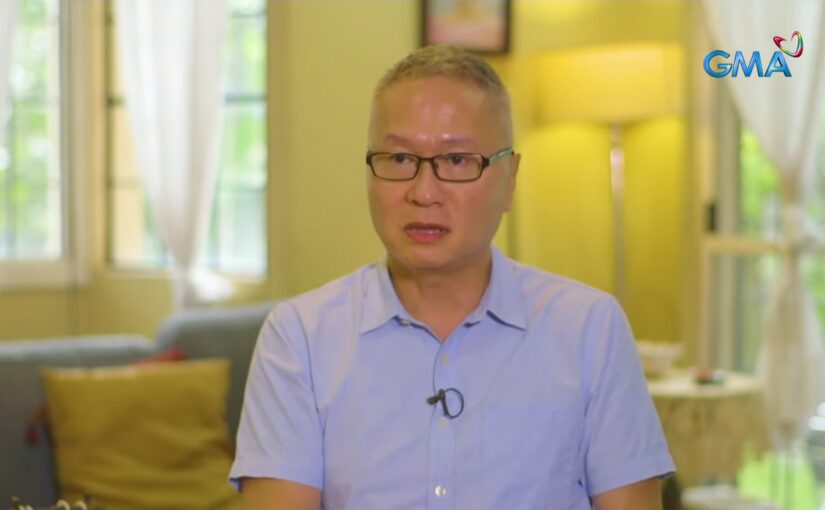Tag: Grief Counseling
Going Inside Your Grieving: Video!
Going Inside Your Grieving
by Nathan Chua
If there is one facet of our internal lives that can be quite a puzzle to many, it could be grieving. This is a part of life that can be difficult to understand. It’s one of life’s mysteries. Many faiths have come about in order to explain the reality of our own finitude. In therapy, there are millions out there seeking help for this process that has so often been misunderstood. Frequently, much of the struggles come from how the grieving process is supposed to happen. Here are some examples of the puzzlement in question form: There must be something wrong with me for not “grieving” the loss as much as others I know. Why can’t I get rid of the guilt so easily just as everyone around me has been advising me to do? Of course, there is also that most common difficulty of all, why can’t I seem to get over it as quickly as some of the people I know? Will this pain last forever?
Some of the misconceptions about grieving is that all of us have to go through a series of stages in order to qualify our process as “normal grief.” As with many other areas in life, we tend to compare ourselves with the people we share moments with. As a consequence of this inevitable mental process of comparing, it is understandable that we would feel guilt whether we go through the stages more or less quickly than others. Or if we have reached complete acceptance or not, which is what most construe to be the final stage of grieving.
Another misconception about grieving is that it involves just one feeling, which is what is expected, sadness. Many can question themselves if they don’t feel as much sadness as expected. Grieving involves multiple emotions and not just sadness. Depending on your relationship with the person you had lost, you can feel anything from a longing for the departed one or a sense of relief that the person is no longer there. And of course, everything in between. It is not a sign of being abnormal for you to think that the loss provided some relief from the past abuses that a close member of the family had brought. Feelings are not there for us to command. You and I can’t just will ourselves to feel a certain way. However our problem-solving, comfort-seeking, overeager and logical minds believe that to be true. Our minds are very good tools for eliminating discomfort. But our feelings are not an inconvenience or like mosquitoes that we can just kill off with a slap of our hands. Our feelings tell us that we have lost someone we cared for very deeply, or on the other extreme, someone who might have caused much pain in our life,
Another thing our minds do is comparing. One thing that we fail to do when we focus on comparisons as we rush ourselves out of the process, or when we rant about the what if’s, is what I indicated in the title of this article. In ACT or Acceptance and Commitment Therapy, we frequently help move people to look inside their pain just as we do for our own. Within our pain, there could be a gift that we don’t see. The gift of really loving and caring for another. I often ask my grieving clients to shift their perspective by imagining someone who comes to them with a similar loss and says that the experience is of no consequence to them emotionally. Would you be more or less worried about this person?
And what do I mean about going inside our grief? As I had indicated earlier in this piece, it is learning more about what is behind the pain. This is part of our humanity. The pain is part of what makes us deeply love and care while a person walks among us.
Finally, there is probably something about the departed one that you treasure most. Something that this loved one has taught you through their life, Here’s one exercise you can do. Write down all the wonderful things you experienced and learned from this person, and imagine this person sitting there beside you and you were reading this out loud to them. What do you think this person would feel or say about what you just wrote or read for them? And then ask yourself another important question. Must this be that person’s legacy? If your answer is yes, then what can you do to honor that?
And then look through what you have done in the past weeks, months or days, do these things that you do reflect a sense of honoring the life of this person who meant so much to you? If not, then maybe it’s time to do something else that will. You may end up doing something that involves either getting out of the pain, or carrying your pain with you while you live out a life worthy of your loved one’s legacy.
When we grieve…
by Nathan Chua
Nothing can be more heartrending than to see someone in my office having to deal with the loss of a dear one. Not only is there pain in seeing the empty spaces at home, but also the empty hours that go by without a familiar companion. Some even have to deal with the images of seeing the loved one’s struggle for that one last breath.
How does one cope with such a cruel reality that life introduces us to, the moment we lose that childhood innocence? What does grieving involve? How do we move on when all we have are memories of something that will never happen again? Why is it so hard to find relief?
Some of the unnecessary suffering we experience in the course of grieving involves our own struggle against the feelings that come with a loss. When we suppress our feelings that come with such an evocative event, we end up with an unwinnable struggle. A common misconception is that grief is a feeling that we should try to get over with. We feel especially unfit when we are not able to do so just at the time when others around us have. Attached to this idea is the effort to appear unperturbed by the pain we carry. Grief is not a feeling but a process that involves different feelings. There will be guilt, hurt, sadness, anger, and many more that come along with the process.
A common experience is the advice that we get from well-meaning people around us who try hard to cheer us up. Our minds will quickly relate this to some kind of internal defect having been left behind by the group that has moved on with their feelings. We reject parts of us that tell us that we have lost someone we cared for. You and I are not robots or computers that can be programmed to shut down certain thoughts and feelings with the flick of a switch. This is what I often end up observing in my clients. It is quite understandable since there is so much pressure to conform with the expectations; especially of those they hold in high regard.
If we run away from our difficult feelings then we don’t really learn much about who we are or what we hold to be important in our relationships. Grieving now turns into a struggle with our own thoughts, feelings, and memories. We overlook the reason behind our pain. That reason is important because we cared enough to hurt over what we have lost. Dr. Steven Hayes had this to say, “The things that bring us pain, also enrich our lives. When we cry at the loss of a friend, we’re enriching our lives, we’re not diminishing our lives.”
One of the processes that can help us get through with more resilience, purpose, and meaning in the midst of such a crushing event is to remember why this person meant so much to us. Maybe they were kind and loving. Maybe they never had a bad thing to say about others. Maybe they were thoughtful and caring, gentle and soft-spoken. Whatever it is that they left in your memory only tells you one thing. That those same qualities of being they lived, are pretty much the same in you. Live it! Bring their lives into yours and experience for yourself what some experts call a place in time, “where the magic happens.”
Grief Counseling Module with Russ Harris
Nathan just finished another training module with renowned author and ACT therapist from Australia, Dr. Russ Harris!
Do you need counseling?
Do you need counseling for depression, anxiety, trauma, relationship (marriage, family) problems, insomnia, anger management problems, infidelity, teen parenting issues, grief processing, addiction, procrastination, work performance, and even weight issues?
We are here to provide you with evidence-based approaches that are backed by reliable and valid scientific research!
We provide both in person and online video counseling for your convenience.
Please text (preferred) or call:
Mobile Number: +63 917 886 5433 (LIFE)
Available also on Viber and WhatsApp!
(The best option is to message this number through Viber or WhatsApp and we will gladly call you back or reply!)
You can also call our booking hotline!
Booking Hotline: +632 8396 6007
The booking hotline is available 24/7!
Email:
Connect with us through Facebook, follow us through Spotify and YouTube.
Our offices are located in Quezon City, Metro Manila, Philippines.
CMS Clinic
2nd Floor Back to the Bible Building
135 West Avenue, Quezon City, Metro Manila, Philippines
and
M Place South Triangle
8004 Mother Ignacia Avenue, Quezon City, Metro Manila, Philippines
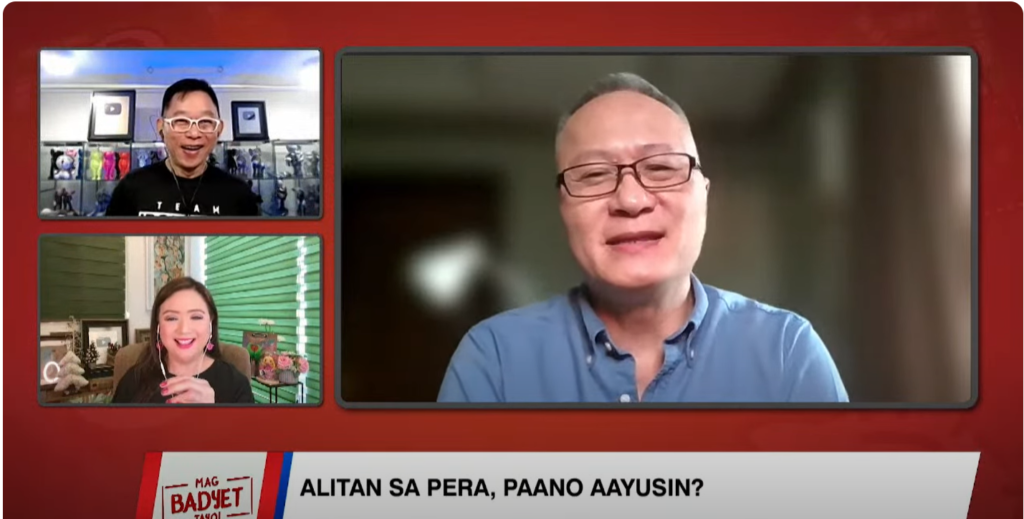
Nathaniel Chua is a member of an international organization called the Association for Contextual Behavioral Science (ACBS). He became chair of the Diversity, Equity, and Inclusion Special Interest Group (DEI-SIG) of ACBS; the first Non-North American to do so.

Nathaniel Chua has a Master’s Degree in Counseling and continues to learn more of the most cutting-edge approaches to working with the human condition.
Below is Nathaniel Chua’s first virtual talk held on November 17, 2023 in front of an international group of therapists from Low or Middle Income Countries (LMIC). He is the first from the Philippines to do this:
What is One Life Only Counseling about?
- You can be assured that your information with be kept completely confidential.
- You will be respected regardless of your religion, gender preference, ethnicity, economic status, and even your personal lifestyle and values. We are LGBTQIA+ friendly!
- Your counselor will not impose their values and beliefs on you.
- We use a scientific model of counseling that has precision, depth, and scope. Below are bullet points to let you understand better what we mean by this:
- By precision we mean that our approach to counseling tells you how these mechanisms of change work. It is not enough to say that a sense of self-awareness is what creates changes in people’s behavior. Our approach tells us how self-awareness works as one step within a set of processes that can lead to lasting change.
- Depth means the approach we use does not conflict with other theories and models of therapy. In fact, many other approaches can be used as forms of treatment towards greater psychological flexibility. Our approach for instance does not conflict with findings in the area of attachment theory, gestalt therapy, psychodynamic therapy to just raise a few examples. It cuts across other levels of analyses.
- Finally, by scope we mean that our approach comes from the discovery of the smallest set of processes that cuts across multiple mental health concerns from anxiety and depression to personality disorders to psychosis, etc. It is a transdiagnostic approach that seeks to understand what many of the symptoms or syndromes come down to, so these processes can be targeted to address many, if not all of the disorders listed in different diagnostic systems.
- We are also probably the only counseling service in the Philippines that follows a certain philosophy of science with certain a priori assumptions about human nature. With this in mind, we offer a holistic consistent approach to life’s challenges that is a-ontological, monistic, and pragmatic.
- Furthermore, ineffective behaviors are addressed by their classes and functions, therefore making our model of therapy parsimonious and much easier to apply to daily living. Most of our clients are empowered to use the skills they learn in therapy to apply to a multitude of challenging situations without having to rush to a therapist to address specific concerns. If you remember Einstein, everything can be explained by one simple equation, E = mc squared! In other words, we do our best to be ACT-Consistent or as some other experts would call it, we practice, ACT Fidelity!
The approach we use is also one that is endorsed by the World Health Organization as an effective psychological tool for coping with any kind of life crises! It can be described as a kind of psychological vaccine that has been found to be effective in improving and promoting mental resilience in the face of many, if not all kinds of life challenges.
Here’s a paraphrase from Dr. Steven C. Hayes in my interview with him on April 5th, 2022:
“Here’s what the World Health Organization, the best public health and scientific group in the world says about this protocol, this extensively tested protocol is helpful for anyone who is stressed, for any reason, in any circumstance.”
Since 2019, we have been very excited to offer this type of a radically different approach to therapy that is not just about relieving symptoms, but also about helping people towards creating lives imbued with meaning and purpose.
Here’s a video about what makes One Life Only Counseling Services different:
You can read the written version of this video through this link: https://www.onelifeonly.net/about/what-makes-one-life-only-counseling-services-different/
Here is a recent interview for an article on Philstar Life featuring Nathaniel Chua and a legal practitioner about marital sexual consent:
https://philstarlife.com/news-and-views/928796-consent-rape-marriage-explainer
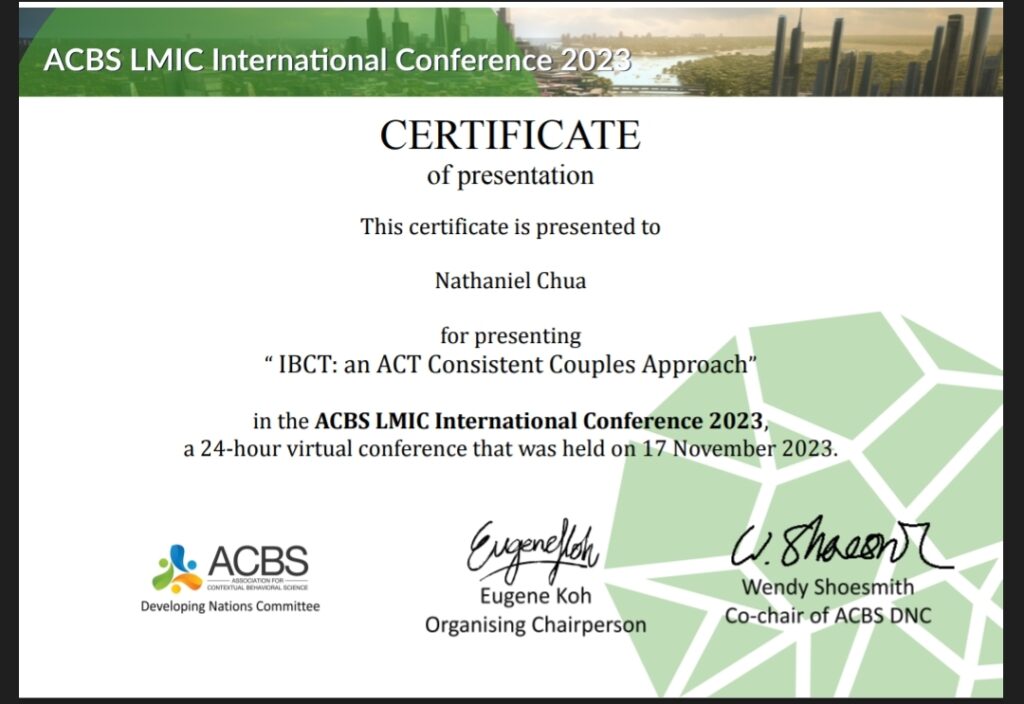

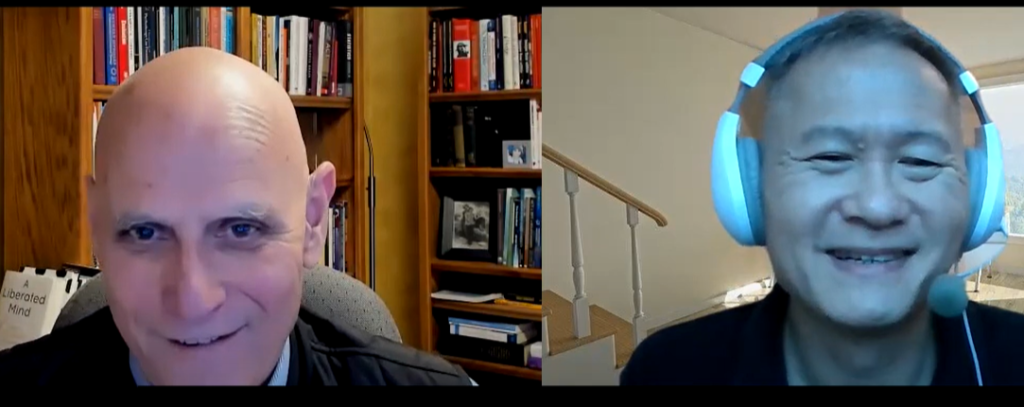
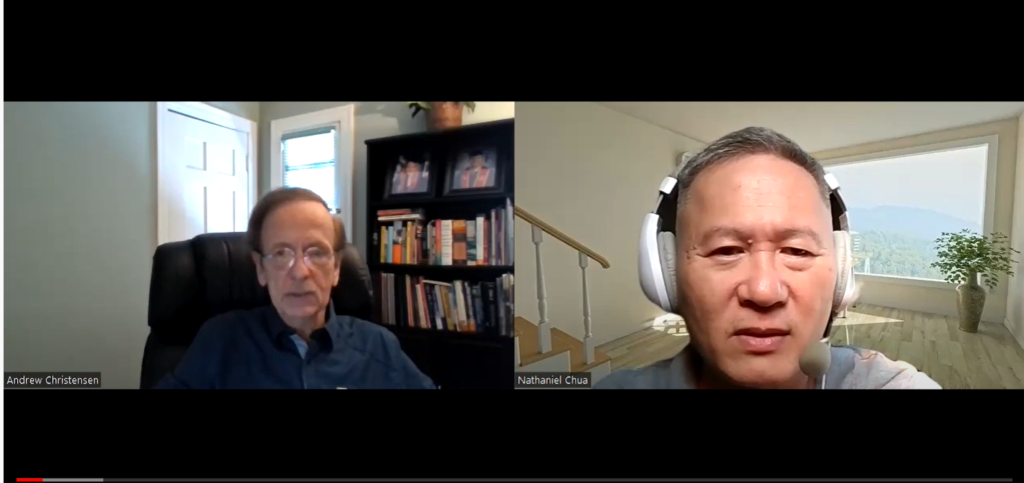
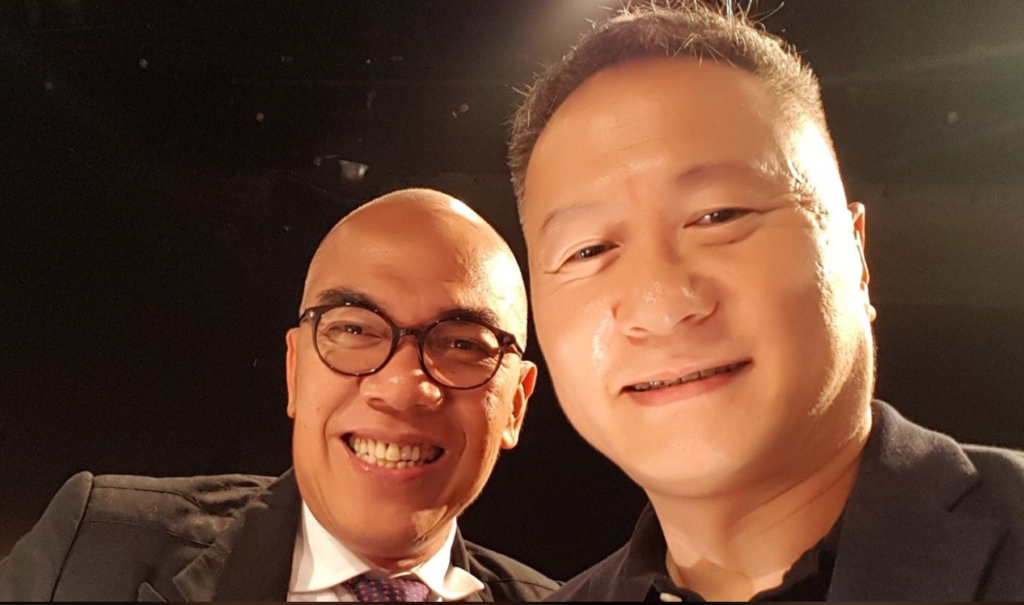

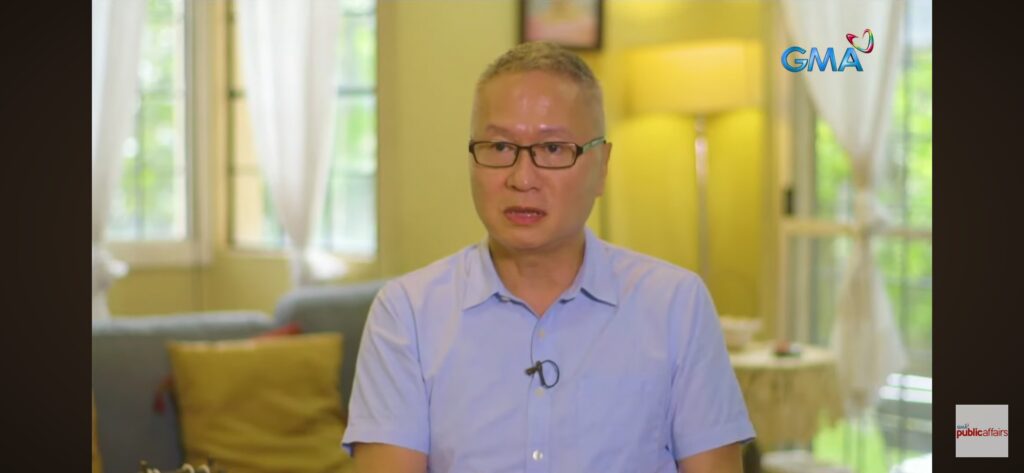
Here a video of Nathan Chua’s appearance on a “Dapat Alam Mo” Episode:
Here’s a solo interview of Nathan Chua with an ACT Matrix Expert and Counselor from the United States, Jacob Martinez:
Interviews with the experts:
Here are two interviews with the two experts that have had a huge impact on my work in recent years. They are with Dr. Steven Hayes and Dr. Andrew Christensen. Here are the videos:


